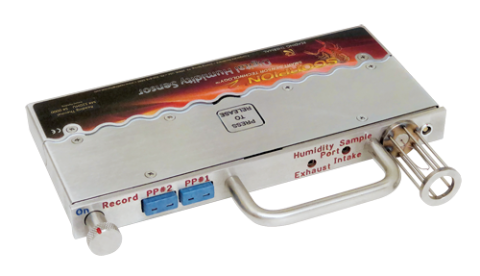When it comes to monitoring and controlling humidity in your industrial bakeries, you can trust Reading Thermal. Precision is the most critical aspect of consistently making your baking products identical to each other. Any deviation is a reflection on your business, which is why Reading Thermal’s products come equipped with leading technologies for exacting measurement and control of temperature and moisture. The technological innovation of our humidity sensors can help you achieve the highest levels of accuracy in your industrial bakery, allowing you to uphold the quality standards that have made your brand successful.
Humidity is an often underestimated factor that can have a big impact on the quality of baked goods in industrial bakeries. High levels of humidity can slow down the baking process, resulting in inconsistent results and even financial losses due to unsellable products. On the other hand, low humidity creates drier conditions that can lead to poor texture and decreased shelf life for many types of baked goods. To make matters worse, achieving ideal levels of humidity isn’t always easy! There’s a delicate balance to maintain, and that level of delicacy can bring down the quality of your baked goods even with the utmost care. In order to uphold your brand’s reputation, you need to ensure you’re capable of controlling humidity in your industrial bakeries.
Why Does Humidity Matter in Baking?
Humidity plays an increasingly important role in baking, as it affects the speed of evaporation and absorption in the dough. Too much moisture can cause the dough to produce too much steam, making it take longer for the crust to form and cook through. On the other hand, not enough moisture will make your baked goods dry out quickly and become crunchy. The ideal humidity for baking tends to range between 40% and 60%, and it can vary depending on the type of dough being used or what kind of baked goods you’re making.
Let’s say you’re producing a batch of crackers. If the humidity is too high, your crackers won’t get crisp and crunchy. On the other hand, if the humidity is too low, then your crackers will become dry and brittle before they’re even finished baking. This means, by necessity, the humidity levels you use for crackers must be entirely different from those used for rolls or other soft breads.
This can be extra tricky if your industrial bakery produces multiple different kinds of baked goods. A small slip-up can ruin a whole swathe of your product, resulting in wasted food or, in a worst-case scenario, disappointed customers.
Using the Right Tools
Fortunately, with the right tools and equipment, you can accurately monitor and control humidity in your industrial bakeries. Reading Thermal’s SCORPION® 2 Digital Humidity Sensor is a reliable and accurate option for controlling humidity in any industrial bakery setting. Pairing this Smart Sensor with our SCORPION® 2 Data Logger provides a precise humidity profile of exactly what’s happening in your oven: what your humidity levels are, how they’re changing over time, and where you need to make adjustments. With this data, you’ll be able to react quickly and save any batches that may otherwise have gone wrong due to issues with humidity.
This kind of oversight is invaluable for any industrial bakery. You can remain confident in the quality of your products and rest assured that you’re capable of controlling humidity in your industrial bakery. If you’re interested in our services, call us at (610) 678-5890 Ext. 2, or contact us online for more details about our innovative products.

